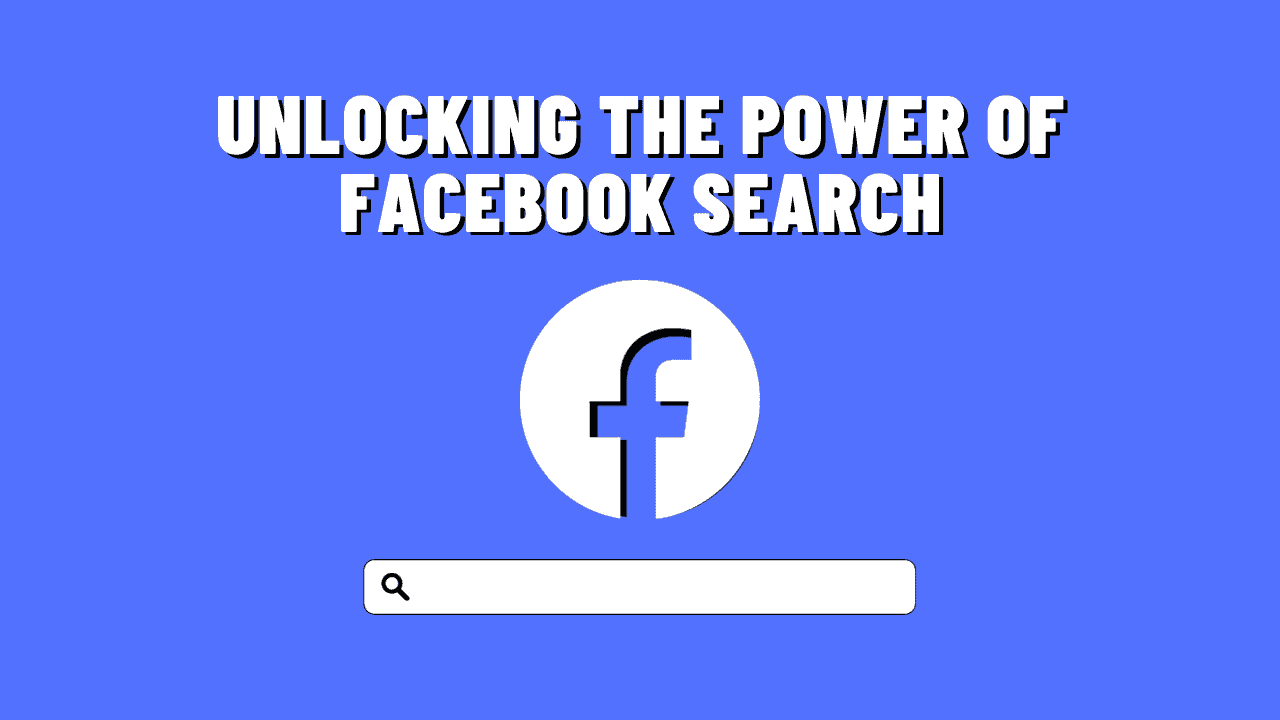Confession time: In 2013, when Facebook introduced Graph Search, I felt somewhat let down. The path from Facebook Graph Search to my business page to my website was long and unlikely to be completed by many. I wasn’t the only one disappointed; Facebook Graph Search had its limitations. In 2014, Facebook addressed the mobile issue and introduced keyword functionality, bringing joy to marketers and investigators who used Facebook Graph Search extensively.
However, in 2019, amid privacy concerns, Facebook quietly removed many Graph Search features, focusing on improving keyword search. For consumers, this means only content they want to share publicly remains public. For marketers, improved keyword search makes all public content easily accessible, including Pages (which are always public), public groups, public profiles, and public posts. The great news is that mastering Facebook search can help optimize your content for better visibility among your ideal audience, a valuable Facebook marketing strategy. Let’s explore this further.
How Facebook Search Works Now
Facebook’s latest update allows keyword searches for people, posts, photos, places, pages, groups, apps, and events.
For instance, you can search “Shirley wedding” for pictures from your cousin’s wedding. You’ll see people you know first and public results, including nearby ones.
Note: To find specific content, like Shirley’s wedding photos, you might need to try variations like “Shirley’s wedding pictures.”
Images often rank well on Facebook, so they might appear first.
As a marketer, you might not search for weddings. Let’s use someone’s blog page as an example. Type it in the search bar on desktop or mobile.
On the desktop, it’s at the top left.
On mobile, tap the magnifying glass at the top right.
Facebook may return results grouped by relevance to you, but they may not be recent.
You can filter results on the left by post types:
- All.
- Posts.
- People.
- Photos.
- Videos.
- Marketplace.
- Pages.
- Places.
- Groups.
- Events.
The mobile version has filters at the top but gives the same results.
Why does this matter for marketers? Understanding search helps you optimize content or find specific posts or phrases.
Using Facebook Search Filters
On Facebook’s desktop and mobile apps, selecting the posts filter reveals extra filters.
These let you dig deeper, refining the Facebook search for recent posts, posts you’ve viewed, or posts from a specific year or place. You can filter content by source:
- Anyone.
- Yourself.
- Your friends.
- Your groups and pages.
- Public posts.
On mobile, you find these options at the top right.
Surprisingly, not many results show up for the Build My Plays blog. This is because most of our posts don’t include “Build My Plays blog” in the text.
Let’s try another search with “help with Build My Plays”. Now you might find people seeking Build My Plays assistance or experience.
Indeed, a Facebook search reveals a group for people seeking Build My Plays advice, in addition to the Build My Plays public group.
Who Can Use Facebook Search?
Facebook search is mainly for people logged into their accounts on the desktop or mobile apps. Although you might find some Facebook pages on search engines, using Facebook’s search to the fullest requires you to be logged in.
This makes sense because your search results depend on how you use Facebook and connect with people.
Who Can See Your Personal Page?
When Facebook Graph Search started, people could find almost anything, but that’s no longer the case, as we mentioned earlier.
With Facebook’s increased focus on privacy, if you set your page as private or for friends only, your posts should be visible only to that audience. While some older posts may have become public unintentionally, recent ones won’t.
Now is a good time to review your privacy settings to ensure only the content you want to be public is visible.
5 Ways to Use Facebook Search as a Marketer
Even though Facebook Graph Search is no longer available, you can still use Facebook’s search to reach your target audience. Here are five steps to make the most of it:
1. Understand Your Audience and Their Needs
Before you start using Facebook search, get to know your audience better. Learn where they spend time, what they’re looking for, and their questions. Here’s how:
- Join groups your audience is in.
- Pay attention to their questions.
- Note the key phrases they use.
- List the content you have that answers their questions.
- Keep track of content ideas for future blogs or videos.
- Engage with their posts and share your articles if allowed.
By engaging in groups your audience is part of, your content is more likely to show up when they use Facebook search. The algorithm will also favor your content.
Test this by sharing content between your personal and business pages, ensuring personal posts are public for easy discovery.
2. Strengthen Your Evergreen Content and Promotion
Old posts can still appear in today’s Facebook search if they remain relevant. To boost your Facebook click-through rate (CTR) over time, focus on creating and sharing evergreen blog posts and videos with links on Facebook.
Wondering what to create? Refer to the audience research we discussed earlier. By doing so, your posts will stay relevant when people use Facebook to search for evergreen topics in the future.
Additionally, this content is valuable for generating consistent traffic from Google, ensuring you cover all your organic traffic sources.





